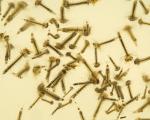Is it possible for pregnant beets? Is it possible for pregnant women to eat beets with garlic, boiled and raw beets.
This vegetable has a beneficial effect on digestion and contains almost the entire set of necessary useful elements (read about what exactly beets are useful for the male, female and children's bodies).
Beetroot contains:
- glucose;
- fructose;
- pectins;
- carotenoids;
- vitamins C, B2, B5, B9, E, PP;
- malic, citric and oxalic acids;
- cellulose;
- potassium;
- iron;
- manganese;
- iodine, etc.
In addition, it does not lose its properties after heat treatment, so it can be eaten in various forms.
Pregnant women often gain weight, but beets do not contribute to this process. It also perfectly cleanses the intestines and restores its imbalance, forcing it to work smoothly, by stopping putrefactive processes.
Beets are very useful for pregnant women - experts have come to this conclusion.
- At an early stage, in the first trimester of pregnancy, the vegetable helps fight toxicosis.
- At the late prenatal period of pregnancy - prevents the formation of constipation, relieves swelling and acts as an ally in the fight against excess weight.
To the question "Is it possible to eat beets during pregnancy?" the answer is unambiguously positive.
Important! Any product, even very useful, should be used in moderation.
Does it matter how a vegetable is cooked?
As mentioned earlier, the beneficial properties of beets do not weaken when they are processed, which means that they can and should be used to prepare various dishes.
The root crop can be added to salads, soups, side dishes - this will diversify a limited diet during pregnancy. Baked fruits have an unusual and pleasant taste, while retaining their usefulness, but fried beets, unfortunately, lose their beneficial properties and become high in calories, so it is better to avoid its excessive consumption.
Benefit and harm
The vegetable is easily digested and rarely causes. During pregnancy, it helps to solve a number of health problems:
- Helps relieve swelling due to its diuretic properties.
- Strengthens bowel function, helping to avoid constipation.
- Stabilizes blood pressure, preventing it from rising.
- Improves blood formation.
- Normalizes the work of the kidneys and liver.
- Contributes to the treatment of hypertension, has a beneficial effect on the work of the heart.
- Supports the functioning of the nervous system, etc.
In addition to the usefulness of beets, it perfectly removes toxins from the body, and is also an effective antipyretic. Undoubtedly, the benefits of eating beets are much greater than the harm, but in some cases it is better for pregnant women to refuse it.
Possible negative consequences of consuming a vegetable:
- Lowering blood pressure in women. In those predisposed to low, it can worsen general well-being and provoke fainting.
- Violation of the bowel is possible in women suffering from diarrhea.
- Beets are a sweet product that can increase sugar in diabetes with all the ensuing consequences.
On a note. In general, problems when eating a root crop rarely occur, as a rule, personal intolerance to the product plays a role.
Indications and contraindications
During pregnancy, a woman's body can unexpectedly respond to the consumption of familiar foods, so expectant mothers are wary of what gets on their table. Let us consider in more detail when you can and should eat beets, and when you should limit yourself to other vegetables.
The use of the root crop is necessary for pregnant women suffering from:
- High blood pressure.
- Constipation.
- Elevated body temperature (many drugs are contraindicated for pregnant women, and beets are a natural antipyretic).
- Iodine deficiency.
- Edema and severe weight gain.
Consider what are the contraindications.
Limit the amount of mass consumed or completely exclude a vegetable from the diet should be women with such ailments as:
- Diabetes.
- Reduced blood pressure.
- Diarrhea.
- Urolithiasis disease.
- Tachycardia.
- Heart disease.
Product recipes
There are a lot of recipes for preparing the product. They are varied in the method and use of raw materials.
Reference. You can use not only root crops, but also tops, which are in no way inferior in terms of the number of useful elements.
Raw
Not everyone likes a raw vegetable, but for lovers there is a wonderful recipe for a crispy salad.
- Grate 1 small fruit on a fine grater.
- Steam 1 tbsp. l. raisins and mix with the main beet mass.
- Add salt and sugar (possibly honey) to taste.
- Add some lemon juice.
- Let stand for half an hour - an hour, and then season with sour cream.
If there are no problems with digestion, then you can use 100-150 grams of such a salad at a time. Women with frequent bouts of diarrhea are recommended no more than a couple of spoons, and those suffering from high acidity of the stomach are better off completely refusing to eat raw vegetables.

Boiled
Boiled beets can be used as a dietary side dish. For this you need:
- Pour cold water over small root crops and bring to a boil. Depending on what kind of vegetable, the cooking time is adjusted. Usually the process lasts no more than an hour, and for young fruits 15-20 minutes.
- Drain the water and let the beets cool.
- Cut into slices and season with lemon juice.
- Salt and add dill, parsley or spinach.
Due to the low calorie content, the product is harmless to the figure, for which it is valued by future mothers.

Beets are a storehouse of useful substances, so necessary for future mothers. The vegetable does not lose its properties after cooking using heat treatment, and does not affect the figure. The beneficial effect on the entire body as a whole and in certain ailments makes it indispensable in the diet of every person.
During pregnancy, nutrients, vitamins and trace elements are needed for nutrition. After all, the health of mother and child depends on proper nutrition. Vegetables contain the necessary amount of these substances. Beets are one of those vegetables that are very beneficial for pregnant women.
The composition and useful properties of beets
Beets contain sodium and calcium in the most beneficial ratio for the body. It contains vitamins A, B, C and PP, trace elements: magnesium, copper, phosphorus, potassium, iodine, iron and betaine. It is also a rich source of fiber, carotenoids, flavonoids and the beneficial lutein.
The benefits of beets during pregnancy
Most importantly, beets help produce red blood cells. It can remove toxins from the body. Thanks to its juice, you can strengthen the immune system, normalize metabolism.
- Beetroot juice has an antipyretic effect.
- Beets help improve the functioning of the liver, gallbladder and kidneys.
- Boiled beetroot helps to improve bowel function, has a diuretic effect on the body. It will help with constipation and will not harm the fetus.
- Beets contain folic acid, which can prevent even some birth defects in newborns.
- If the expectant mother suffers from urolithiasis, diseases of the bladder and kidneys, then the amount of beets must be reduced.
- Useful in beets are not only the root crop, but also the leaves. Beetroot leaves also contain a large amount of useful substances.
- During pregnancy, try to eat not only raw vegetables, but also short-cooked vegetables. Raw vegetables should also be consumed in small quantities.
- For the expectant mother, raw beetroot salad with nuts is useful. The amount of raw beets should be determined in accordance with the individual tolerance of raw fiber to the expectant mother.
- Raw beetroot helps to activate the digestive processes. Stewed - the same is suitable if the digestive tract is weak.
Beet Cooking Principles
To keep more useful vitamins and minerals in the beets, try to bake, steam or stew them if you do not want to eat them raw. This will help keep the mineral salts in it. When you boil the beets, put them in water, try not to completely cover the beets. Young beets are boiled for about 20 minutes.
Beet salad recipe for the health of the expectant mother
We make beet salad, which will help cleanse the blood. Finely rub the beets and carrots, all in equal amounts. We cut the cabbage. Dress the salad with unrefined sunflower oil, lemon juice or apple cider vinegar. You can decorate with red currants or cranberries.
If you need a large amount of vitamin A, then you simply cannot do without beets. It is a storehouse of nutrients and vitamins. Beetroot is a very useful vegetable, and during pregnancy it will be simply irreplaceable.
During pregnancy, nutrients, vitamins and trace elements are needed for nutrition. After all, the health of mother and child depends on proper nutrition. Vegetables contain the necessary amount of these substances. Beets are one of those vegetables that are very beneficial for pregnant women.
The composition and useful properties of beets
Beets contain sodium and calcium in the most beneficial ratio for the body. It contains vitamins A, B, C and PP, trace elements: magnesium, copper, phosphorus, potassium, iodine, iron and betaine. It is also a rich source of fiber, carotenoids, flavonoids and the beneficial lutein.
The benefits of beets during pregnancy
Most importantly, beets help produce red blood cells. It can remove toxins from the body. Thanks to its juice, you can strengthen the immune system, normalize metabolism.
- Beetroot juice has an antipyretic effect.
- Beets help improve the functioning of the liver, gallbladder and kidneys.
- Boiled beets help improve bowel function, have a diuretic effect on the body. It will help with constipation and will not harm the fetus.
- Beets contain folic acid, which can prevent even some birth defects in newborns.
- If the expectant mother suffers from urolithiasis, diseases of the bladder and kidneys, then the amount of beets must be reduced.
- Useful in beets are not only the root crop, but also the leaves. Beetroot leaves also contain a large amount of useful substances.
- During pregnancy, try to eat not only raw vegetables, but also short-cooked vegetables. Raw vegetables should also be consumed in small quantities.
- For the expectant mother, raw beetroot salad with nuts is useful. The amount of raw beets should be determined in accordance with the individual tolerance of raw fiber to the expectant mother.
- Raw beetroot helps to activate the digestive processes. Stewed - the same is suitable if the digestive tract is weak.
Beet Cooking Principles
To keep more useful vitamins and minerals in the beets, try to bake, steam or stew them if you do not want to eat them raw. This will help keep the mineral salts in it. When you boil the beets, place them in water, try not to completely cover the beets. Young beets are boiled for about 20 minutes.
Beet salad recipe for the health of the expectant mother
We make beet salad, which will help cleanse the blood. Finely rub the beets and carrots, all in equal amounts. We cut the cabbage. Dress the salad with unrefined sunflower oil, lemon juice or apple cider vinegar. You can decorate with red currants or cranberries.
If you need a large amount of vitamin A, then you simply cannot do without beets. It is a storehouse of nutrients and vitamins. Beetroot is a very useful vegetable, and during pregnancy it will be simply irreplaceable.
The look of a vegetable is a real pantry of trace elements and vitamins. Useful beets are preserved during long-term storage and appear both raw and boiled. Betaine, which gives the vegetable a red color, reduces, effectively reduces the level of homocysteine, a toxic amino acid that causes diseases of the cardiovascular system.
In addition, beets are able to dissolve calcium deposits on the walls of blood vessels and lower the level of bad cholesterol and triglycerides. Due to the presence of vitamin P in this vegetable, the vessels remain strong and elastic. Those who wish to either maintain their weight in a stable state, she will also come to the rescue.
In terms of iodine content, beetroot is second only to seaweed, so it significantly slows down the development of sclerosis, and also improves memory.This vegetable should be included in the daily menu of the expectant mother. First of all, it contains a lot of iron, which women always lack. Beets also help with digestive problems that often occur during. Raw and boiled beets are very useful for hypertensive patients, as well as those suffering from liver and kidney diseases.
The folic acid contained in the root contributes to the prevention of some intrauterine developmental defects. If the pregnancy period fell on spring and summer, you can add beet leaves rich in vitamins to food, and by autumn it is time to move on to root crops, preparing all kinds of dishes.
To avoid nausea and dizziness when drinking freshly squeezed beetroot juice, it is recommended to put it in the refrigerator for 2 hours, and dilute it slightly with water before drinking.
Is it always good to eat beets for a future mother?
There are some when eating this vegetable. Pregnant women with diabetes are not recommended to eat beets in any form, as this vegetable has a lot of sugar. Patients with urolithiasis should reduce their consumption of beets to a minimum due to the presence of oxalic acid in them.Raw and boiled beets increase the acidity of gastric juice, so it is not recommended to get involved in dishes from it. Due to the strong laxative effect, this vegetable is undesirable for those suffering from chronic diarrhea.
Beetroot is a vegetable that many of us love and eat with pleasure. Dishes from it are tasty, easy to prepare and healthy for everyone. But do you know that during pregnancy, the beneficial properties of beets will come in handy not only as a food product, but also as a tool that helps regulate various processes in the body of the expectant mother?
The answer is simple - it is a complete source of vitamins, mineral salts, vegetable amino acids and fiber necessary for digestion.
Cooked beetroot dishes during pregnancy help to cleanse the intestinal tract, providing the effect of a natural and mild laxative, especially when combined with an additive such as prunes, popular in salads.
If your problem is constipation, you don't need to take medication - just eat this boiled vegetable 2-3 times a week and your bowels will improve.
You can resort to raw beets during pregnancy if your goal is to cleanse the intestines of bacteria that cause decay and harm the immune system. Raw vegetable juice is a concentrated solution of salts and phytoncides that stimulate the intestinal mucosa, have a positive effect on hematopoiesis and help with bile stasis, which causes such trouble for pregnant women.
Another solution of beetroot juice during pregnancy is used in folk medicine as drops from the common cold. It is a pure and natural product, so there are no side effects and you don't have to worry about how it will affect the child. Just note that it is the solution that needs to be instilled into the nose, and not pure juice, otherwise you risk burning the nasopharyngeal mucosa.
Homemade drops are made like this: you need to squeeze 1 teaspoon of juice and dilute it with 1 tablespoon of boiled warm water. Instill a fresh solution of 1-2 drops in each nostril 2-3 times a day. Beetroot from a runny nose during pregnancy is used after washing: if the nose is very stuffy, before instillation, you need to rinse it with a weak saline solution to remove mucus as much as possible.
Sometimes there are tips for cleansing the intestines with an enema with a weak solution of beet juice. But it is important to understand that an enema, although it refers to mildly acting methods, can still provoke uterine tone due to a mechanical effect on the intestines and pelvic organs. With an increased tone, it is better not to get carried away with enemas! It is wiser to use this vegetable in food and get a natural laxative effect.
Beetroot dishes in the diet of a pregnant woman: how to cook and how much to eat
The root crop can be consumed in the form of salads, side dishes, added to soups and main dishes, fresh, baked, boiled, stewed. It is better to refuse pickled and sour, because there is a lot of vinegar, lactic acid and spices. You can enjoy such goodies only sometimes, if you really want to, and quite a bit - about 1-2 tablespoons in one sitting.
If you don't mind a fresh root vegetable, then you will like raw beets in the form of a salad. You can crunch on a sweet vegetable with taste if you cook it, for example, according to the following recipe.
crispy salad
- grate 1 small root vegetable;
- mix with steamed raisins (1 tablespoon);
- salt, sweeten with sugar or honey;
- drizzle with lemon or balsamic vinegar;
- leave for half an hour or an hour;
- season with sour cream or yogurt - done!
How much of this salad can a pregnant woman eat? It all depends on the state of the digestive system - if there are no problems, then a small bowl (100-150 g) will not hurt, if the intestines often weaken, then you should limit yourself to a couple of spoons, and if the acidity of the stomach is increased, then you should not experiment with raw vegetables.
As we have already mentioned, beetroot helps with constipation during pregnancy. If you are going to cleanse the intestines, boil 1-2 small root vegetables and eat during the day. Boiled beetroot loses a certain amount of nutrients, but retains all the properties of a fiber-rich vegetable - it enhances the work of the intestines and cleanses it of toxins.
Boiled dietary side dish

Pour cold water over medium-sized fruits and bring to a boil. Autumn vegetables should be boiled over medium heat for a long time - about 1 hour (in the microwave at a power of 800-850 for about 30 minutes), young summer vegetables - half an hour (in the microwave for about 15 minutes).
Then drain the water, let cool, peel and cut into slices. In a plate, sprinkle a portion with lemon juice, salt, add a little dill, parsley or spinach.
Most of all, this vegetable contains vitamin B, as well as magnesium and iodine, and to keep them in a cooked dish, baking is best. Roasted beets can be stored for several days in the refrigerator, eating a little each day, so it saves cooking time.
How to bake beets
We select fruits of the same size, carefully wash the adhering earth (with a brush or a clean sponge for dishes). Spread on a baking sheet and place in the oven on the middle shelf. The temperature in the oven should be about 250-270 °C, time - 1 hour. We look so that the vegetable does not dry out, turn it over, if the bottom begins to bake to the leaf, blacken.
It is better to store a baked vegetable unpeeled, removing the peel only before use. Grated, it is good with sour cream or curdled milk, fermented baked milk, raisins, prunes, nuts, herbs, boiled carrots, potatoes or rice. It also harmonizes perfectly with sea fish and boiled eggs - to your taste!
Is there any harm from beets during pregnancy?
Any product should be consumed in moderation. The beneficial properties of this vegetable are valuable, but you cannot make the basis of nutrition out of it, even if you are a vegetarian and rely on vegetables and fruits.
The mistake some women make is that when they hear about a miracle food, they enthusiastically force themselves to eat too large portions, which sometimes causes discomfort or exacerbates existing health problems.
Always try to approach nutrition wisely and get used to looking at each product as an additive - make compositions of 1-2 tablespoons of different vegetables, herbs, meat, cereals and other things in a plate so as not to overeat the same thing. The more varied the portion, the better all the nutrients will be absorbed and the milder their effect on the body will be.
Know that it is impossible to lean on beets for the following diseases:
- diabetes mellitus, high blood sugar;
- arterial hypotension;
- acute nephritis or pyelonephritis;
- chronic and acute colitis;
- acute gastritis and gastroduodenitis;
- intestinal dysbiosis.

Contraindications from the list are due to the fact that this vegetable has a large amount of sugar and enough magnesium, which reduces pressure, and also because it makes the gastrointestinal tract and urinary system work more actively, which is highly undesirable for current organ diseases.





